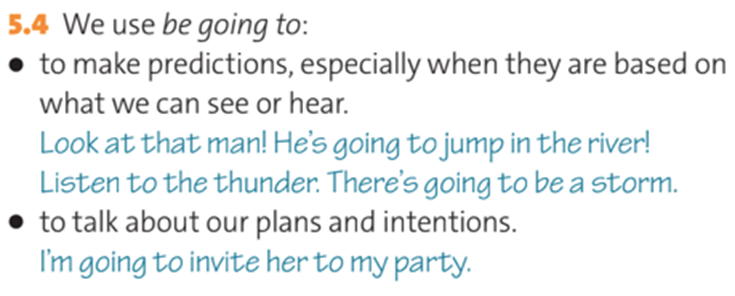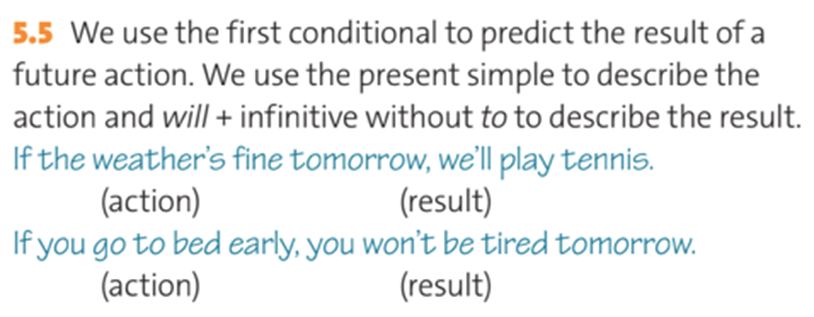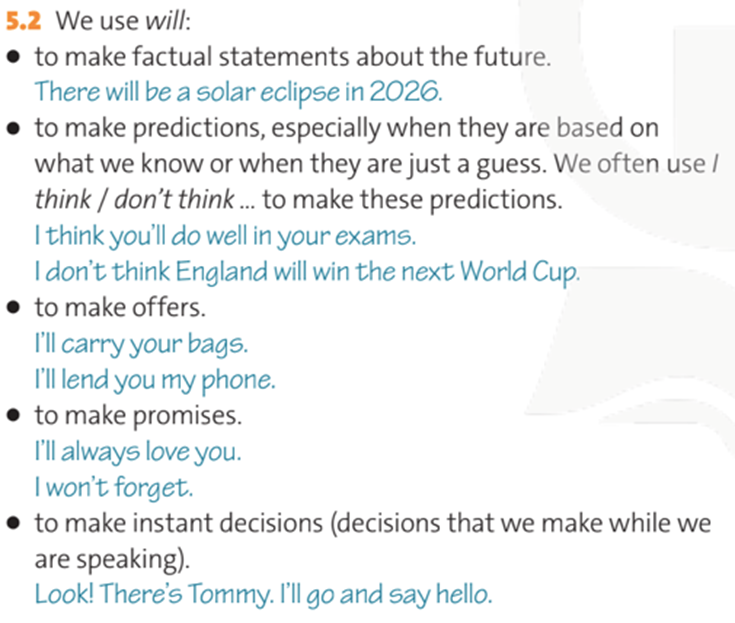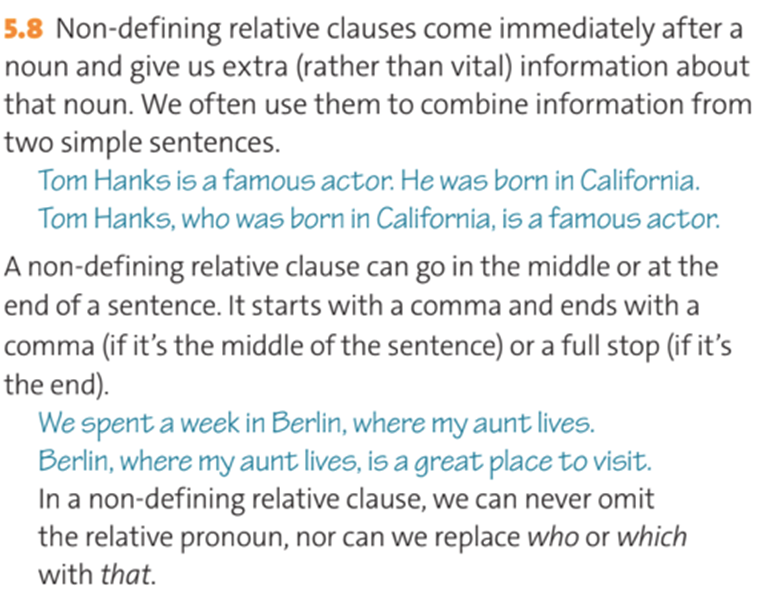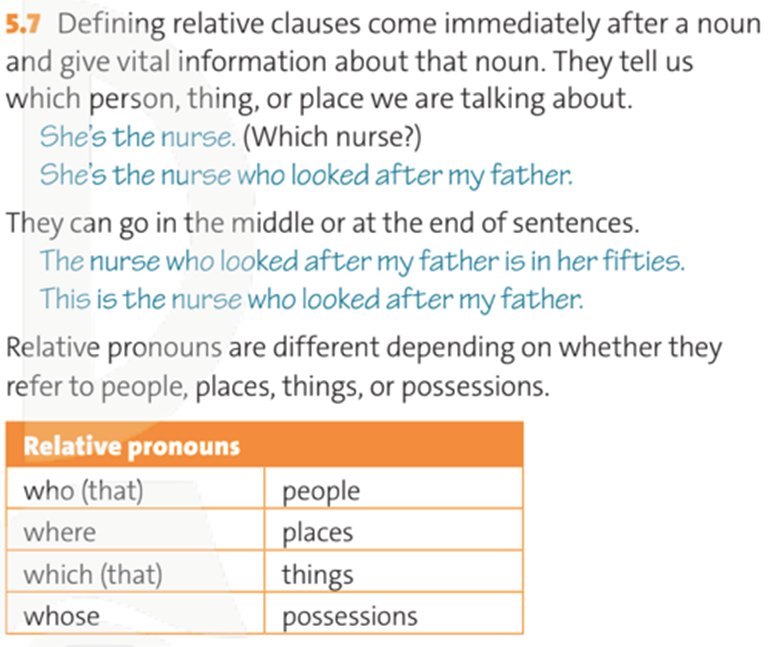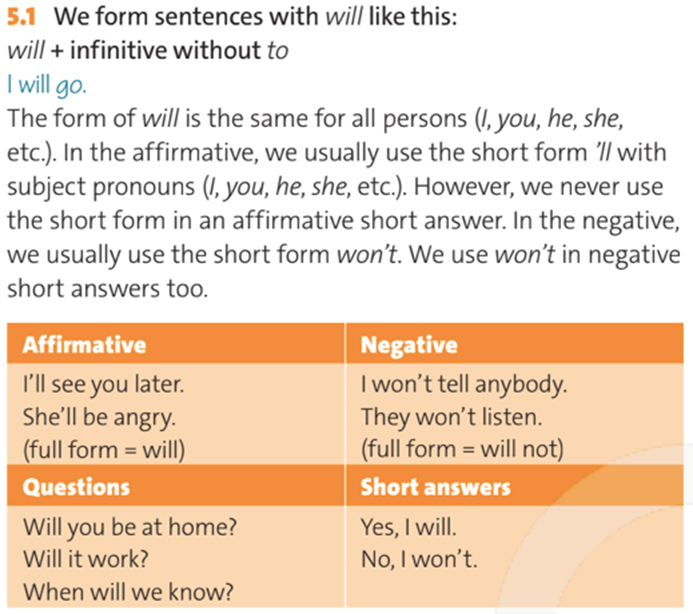Câu hỏi trong đề: Bài tập Grammar Reference có đáp án !!
Quảng cáo
Trả lời:
Hướng dẫn dịch:
Ta dùng be going to:
- để đưa ra dự đoán, đặc biệt khi chúng dựa trên những gì chúng ta có thể nhìn thấy hoặc nghe thấy.
Hãy nhìn chàng trai đó! Anh ấy sắp nhảy sông!
Nghe tiếng sấm đi. Sắp có bão rồi.
- để nói về kế hoạch và dự định.
Tôi sẽ mời cô ấy đến bữa tiệc của tôi.
Hot: 1000+ Đề thi giữa kì 2 file word cấu trúc mới 2026 Toán, Văn, Anh... lớp 1-12 (chỉ từ 60k). Tải ngay
- Trọng tâm Lí, Hóa, Sinh 10 cho cả 3 bộ KNTT, CTST và CD VietJack - Sách 2025 ( 40.000₫ )
- Sách - Sổ tay kiến thức trọng tâm Vật lí 10 VietJack - Sách 2025 theo chương trình mới cho 2k9 ( 31.000₫ )
- Sách lớp 10 - Combo Trọng tâm Toán, Văn, Anh và Lí, Hóa, Sinh cho cả 3 bộ KNTT, CD, CTST VietJack ( 75.000₫ )
- Sách lớp 11 - Trọng tâm Toán, Lý, Hóa, Sử, Địa lớp 11 3 bộ sách KNTT, CTST, CD VietJack ( 52.000₫ )
CÂU HỎI HOT CÙNG CHỦ ĐỀ
Lời giải
Hướng dẫn dịch:
Ta dùng câu điều kiện loại 1 để dự đoán kết quả của một hành động trong tương lai. Chúng ta sử dụng thì hiện tại đơn để mô tả hành động và will + V nguyên thể để mô tả kết quả.
Nếu thời tiết đẹp vào ngày mai, chúng ta sẽ chơi quần vợt.
Nếu bạn đi ngủ sớm, bạn sẽ không bị mệt vào ngày mai.
Lời giải
Hướng dẫn dịch:
Ta dùng will:
- để nói về sự kiện ở tương lai.
Sẽ có hiện tượng nhật thực vào năm 2026.
- để đưa ra dự đoán, đặc biệt khi dựa trên những gì ta biết hoặc khi chúng chỉ là phỏng đoán. Chúng ta thường dùng think / don't think ... để đưa ra những dự đoán này.
Tôi nghĩ bạn sẽ làm tốt trong kỳ thi của mình.
Tôi không nghĩ tuyển Anh sẽ vô địch World Cup tiếp theo.
- để đưa ra đề nghị.
Tôi sẽ xách túi cho bạn.
Tôi sẽ cho bạn mượn điện thoại của tôi.
- để thực hiện lời hứa.
Tôi sẽ luôn yêu em.
Tôi sẽ không quên.
- để đưa ra quyết định tức thì (quyết định được đưa ra ngay tại thời điểm nói).
Nhìn kìa! Tommy đó. Tôi sẽ tới và chào cậu ấy.
Lời giải
Bạn cần đăng ký gói VIP ( giá chỉ từ 199K ) để làm bài, xem đáp án và lời giải chi tiết không giới hạn.
Lời giải
Bạn cần đăng ký gói VIP ( giá chỉ từ 199K ) để làm bài, xem đáp án và lời giải chi tiết không giới hạn.
Lời giải
Bạn cần đăng ký gói VIP ( giá chỉ từ 199K ) để làm bài, xem đáp án và lời giải chi tiết không giới hạn.
Lời giải
Bạn cần đăng ký gói VIP ( giá chỉ từ 199K ) để làm bài, xem đáp án và lời giải chi tiết không giới hạn.
